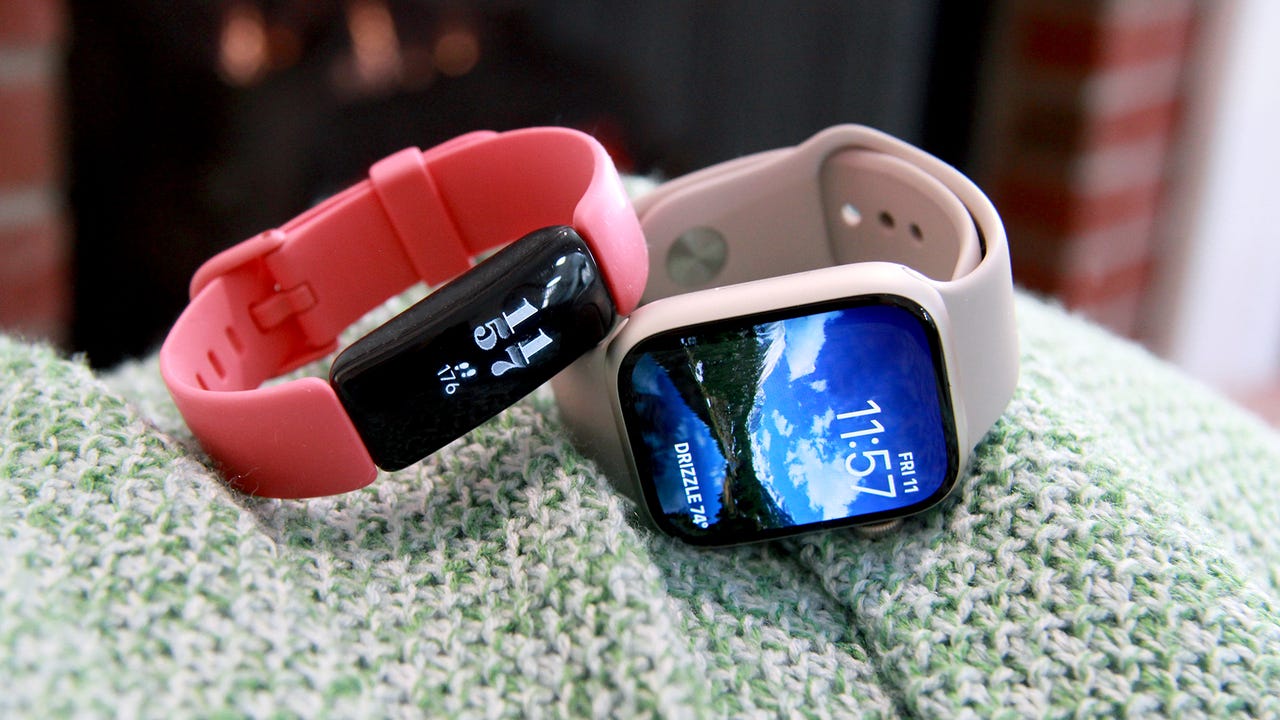'ZDNET Recommends': What exactly does it mean?
ZDNET's recommendations are based on many hours of testing, research, and comparison shopping. We gather data from the best available sources, including vendor and retailer listings as well as other relevant and independent reviews sites. And we pore over customer reviews to find out what matters to real people who already own and use the products and services we’re assessing.
When you click through from our site to a retailer and buy a product or service, we may earn affiliate commissions. This helps support our work, but does not affect what we cover or how, and it does not affect the price you pay. Neither ZDNET nor the author are compensated for these independent reviews. Indeed, we follow strict guidelines that ensure our editorial content is never influenced by advertisers.
ZDNET's editorial team writes on behalf of you, our reader. Our goal is to deliver the most accurate information and the most knowledgeable advice possible in order to help you make smarter buying decisions on tech gear and a wide array of products and services. Our editors thoroughly review and fact-check every article to ensure that our content meets the highest standards. If we have made an error or published misleading information, we will correct or clarify the article. If you see inaccuracies in our content, please report the mistake via this form.
I wore an Apple Watch and a Fitbit to track my sleep. Here's how the data compared

My Fitbit Inspire 2 and Apple Watch 7 compete each morning to provide the most accurate sleep data.
There's a common ailment that plagues me and many others around the world: I stay up too late and then wake up exhausted, and drag my feet all day, only to repeat the cycle again each night. Most of us know we're supposed to get the ideal 7 to 9 hours of sleep every night, but are you actually getting them? I sure as heck am not.
So I decided to get a sleep tracking device. I love data and seeing things in black and white, so when it was brought to my attention that maybe some of my stress was rooted in lack of sleep, I thought a sleep tracker might help.
Also: The 5 best Fitbit fitness trackers of 2023
My research turned up great things about Fitbit's sleep tracking algorithm, so I bought a Fitbit Inspire 2 as the first step to mending my broken sleep. And I'm not the only one to take this step: According to the Journal of Clinical Sleep Medicine, 10% of adults in the United States wear or use a sleep tracking device on a regular basis.
Why I wear both a Fitbit and an Apple Watch
Even after getting an Apple Watch, I wasn't able to part with my Fitbit.
The Fitbit showed me that I was getting even less sleep than I thought I was. I'd expected to see a lot of wake-ups that I'd be able to attribute to tending to my 1-year-old, but, worse than that, I found that I was averaging about 4.5 hours of sleep at night, some nights just barely making it past 3 hours.
ZDNET Recommends
The perfectionist in me quickly accepted the challenge and I became enthralled by sleep data; I would wake up every morning eager to see my stats and began making conscious decisions looking to get not just more sleep, but better-quality sleep, all with the purpose of improving my score.
Around this time, I also got an Apple Watch 7, but found I couldn't part with my Fitbit. After it said the giraffe is my sleep animal, my Inspire 2 and I were buddies. Plus, Apple hadn't released WatchOS 9 yet, so there was no native tracking feature that could show me my sleep cycles and stages like my precious Fitbit could.
Review: Do sleep earbuds actually work? I tested the latest pair to find out
That changed with the release of WatchOS 9 in September 2022, which enables compatible Apple Watches to track sleep stages and cycles. My watch leveled up in the sleep tracking department to better compete with my Fitbit.
Does the Apple Watch track sleep better than a Fitbit?
The jury is still out. Since the new WatchOS that tracks sleep stages and cycles has only been in widespread use for a few months, there's no definitive answer on the accuracy of its sleep tracking yet. Until some peer-reviewed studies comparing it with other tried-and-true methods are published, anecdotal evidence is all we've got.
Also: How to sleep better with the Apple Watch
I'd love to do an actual sleep study while wearing my Apple Watch and Fitbit to see how accurate they are at determining sleep stages -- that's how much I love tracking my sleep. For now, I can only see the data from having worn both devices to bed for months.
Though I don't know which one is more accurate, I've found the Apple Watch 7 consistently does three main things differently from the Fitbit Inspire 2. The data below is a daily average over seven days of sleep tracking, where both devices tracked sleep cycles on the same nights.
1. The Apple Watch shows more light or core sleep and less deep sleep than the Fitbit
| Metric | Fitbit Inspire 2 | Apple Watch 7 |
| Time asleep | 4 hr, 51 m | 5 hr, 16 m |
| Time awake | 48 min | 1 hr, 3 m |
| Light sleep | 2 hr, 23 m | 3 hr, 24 m |
| Deep sleep | 1 hr, 9 m | 48 m |
| REM sleep | 58 m | 1 hr, 38 m |
Tracking your sleep stages and cycles is most accurately done by polysomnography; it's not as simple as monitoring your heart rate all night. Polysomnography analyzes your sleep by tracking your brain waves, breathing and heart rate, blood oxygen level, and eye and body movements throughout the night. While you sleep during a polysomnogram, an electroencephalogram (EEG) can be performed to measure your brain waves, aka the electrical activity in your brain as you navigate different sleep stages.
All these fancy words basically mean that, at this point in modern technology, you can't track sleep cycles with 100% accuracy with devices you wear on your wrist, but you can make approximations with a combination of different data sources and a great algorithm or two. This is what wearables do.
Review: I put the Apple Watch Ultra through a Tough Mudder
As you can see on the table above, my Apple Watch tends to track longer time asleep than the Fitbit by about 25 minutes on average, while also tracking slightly more time awake throughout the night. However, the biggest differences are in Light/Core sleep and REM sleep; the former is marked as over an hour longer by my Apple Watch 7, while the REM sleep is about 40 minutes longer.
2. Asleep and awake times are pretty even for both, with less than a 20-minute difference
| Metric | Fitbit Inspire 2 | Apple Watch 7 |
| Sleep onset | 1:40 a.m. | 1:18 a.m. |
| Awake for the day | 6:45 a.m. | 6:53 a.m. |
While my Fitbit showed less time asleep than the Apple Watch did, by an average of 25 minutes, the data I've seen over the past couple of months makes comparisons between both devices a toss-up: Some days my Fitbit says I fell asleep several minutes or up to an hour before the Apple Watch marked the onset of sleep, times when I was lying in bed reading my Kindle or, yes, watching TikTok.
Also: How to get (great) free books on Kindle
On other days the Apple Watch marks sleep onset earlier than my Fitbit, resulting in times like the ones shown above. Many factors can make this more or less accurate, like how tight or loose your device is, which wrist you wear it on, and how much you move at night.
3. Shows "Time asleep" as longer than "Time in bed" about half the time
Six of the seven instances where my Apple Watch has recorded longer times asleep than times in bed in the past 30 days.
The new update to the Apple WatchOS gives it the ability to track sleep stages by analyzing heart rate and movement, and it does so with at least some accuracy: though it's still too soon for published, peer-reviewed studies, my anecdotal impression is that the Apple Watch is more accurate than Fitbit at sleep tracking.
Some other anecdotal examples, like scientist's Rob ter Horst's sleep tests (video), also found the Apple Watch post-WatchOS 9 update to be the most accurate at tracking sleep cycles of the devices he's tested.
Also: Apple Watch Ultra vs. Garmin Enduro 2
But one thing that grinds my gears is that the Apple Watch tends to show my total time asleep as longer than the total time I actually spent in my bed, as shown in the picture above. Complaints from other users show this isn't a new problem, and it makes me question the accuracy of the sleep tracking data the Apple Watch gives me.
You should buy an Apple Watch if...
An Apple Watch 7 with data from a night's sleep on display.
You're an Apple person who wants a smartwatch with solid sleep tracking.
The Apple Watch has more features than a fitness tracker, like more third-party apps, for example, and fits seamlessly into the Apple ecosystem.
When comparing Apple Watch models or deciding whether to upgrade to a new Watch model, it's worth noting that some features are exclusive to the Apple Watch Series 8, like crash detection, which can alert emergency services in the event of a car accident, and temperature tracking, which could help track ovulation via changes in basal body temperature.
Also: The best Apple Watch models of 2023
As far as sleep tracking, anecdotal evidence is split so far, but I've preferred tracking with my Apple Watch 7 since the WatchOS 9 features rolled out. I find that it's more often accurate on showing my sleep onset time and the times I wake up during the night, but I can't speak for the sleep stages data without further evidence.
You should buy a Fitbit if...
The tiny and adorable Fitbit Inspire 2.
You're team Android, and/or looking for a top-of-the-line fitness tracker with sleep tracking.
Because Fitbit models can sync with both iOS and Android, a Fitbit is a better option for Android users, since the Apple Watch is exclusive to iPhone owners.
The lineup of Fitbits is also much more affordable than the Apple Watch, so if you're in the market for a fitness tracker but don't want to spend too much, this is likely a better choice.
Though they don't have as many features as the Apple Watch, Fitbit also has a line of smartwatches, like the Fitbit Sense 2, Fitbit Versa 4, and Fitbit Versa 2, as well as Fitbit tracking on the Google Pixel Watch.
Review: Fitbit's Sense 2 gave me a glimpse of how the Google Pixel Watch will be
